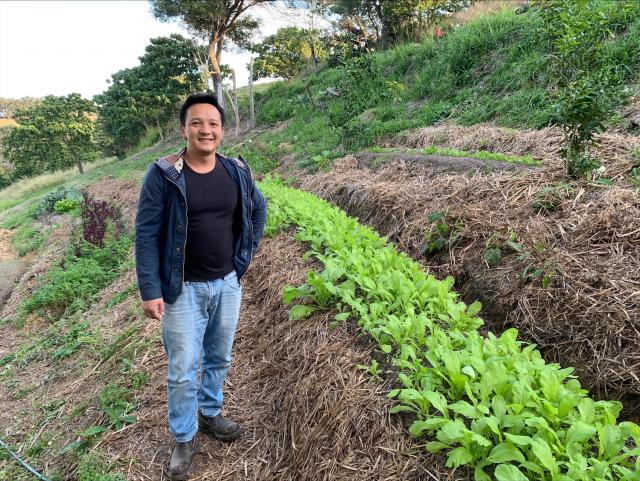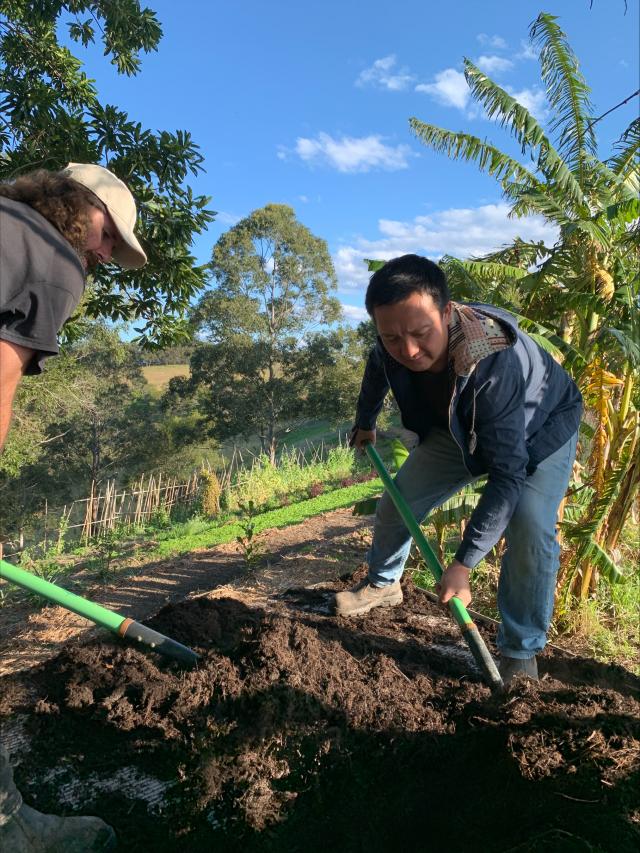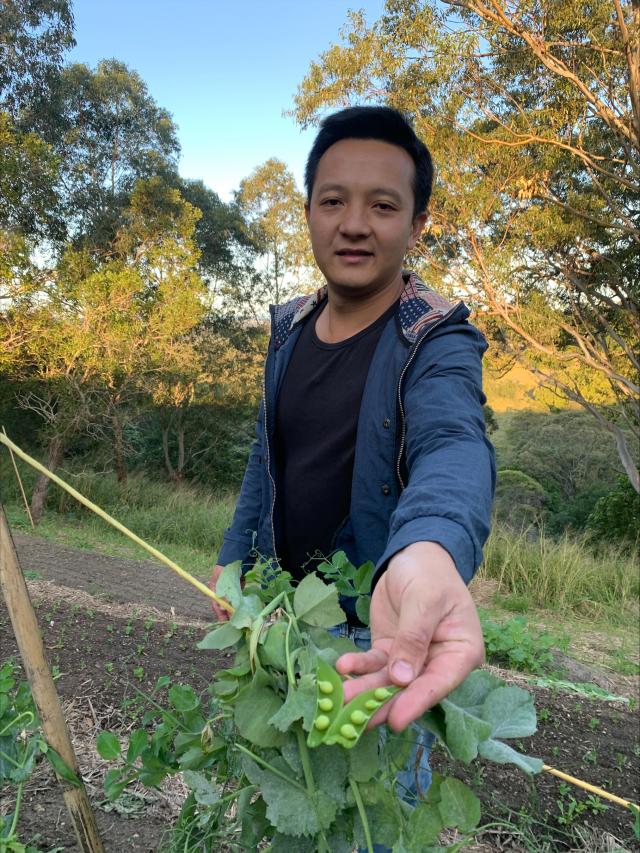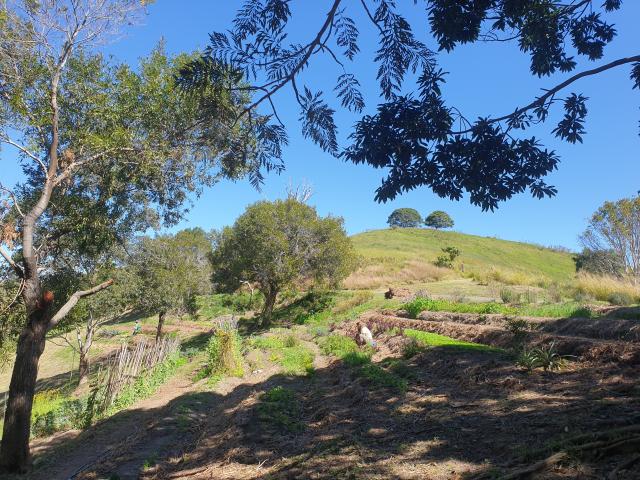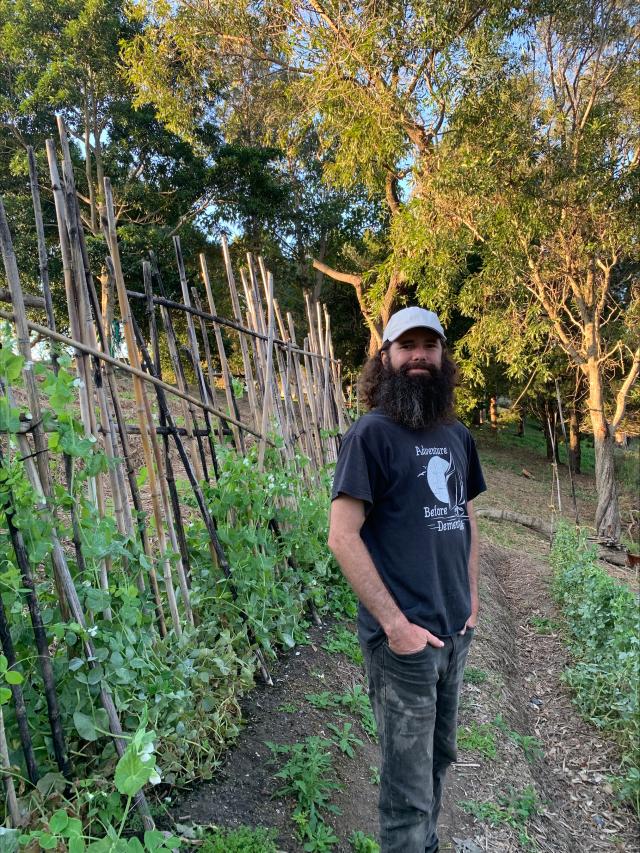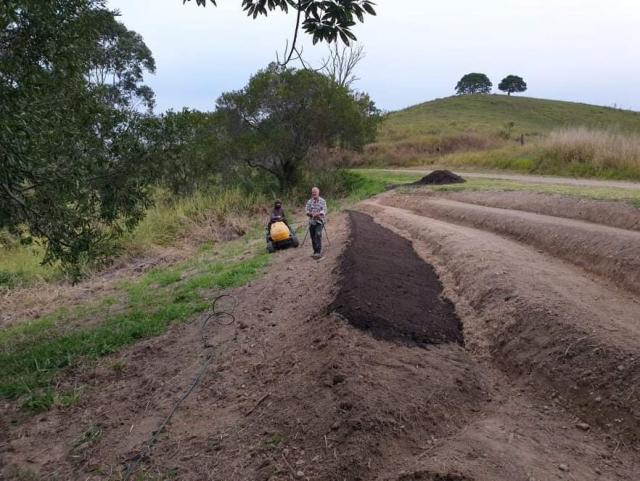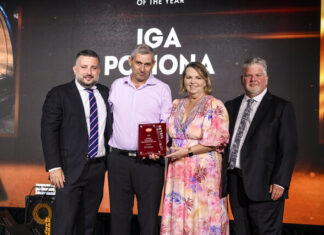With the help of Noosa Agri-hub networks and family, a paddock-to-plate dream of Embassy XO executive chef James Wu to harvest his own home-grown produce to supply ingredients for his restaurant is being realised.
The chef’s dream aligns with a growing number of Noosa produces and foodies along with Noosa councillor Tom Wegener, who, while also president of Permaculture Noosa, is at the forefront of the Agri-hub project to make Noosa the good food bowl of the country by the 2032 Brisbane Olympics.
Last week Tom visited James and his wife Phoebe at their Cootharaba property to deliver a load of double grind mulch from the Noosa Tip for their gardens.
“Noosa Council wants to get green waste back onto the land. It is about food security, climate change response, healthier food, low food miles, stopping erosion, and growing the foodie economy,“ Tom said.
James grew up on a farm in Windsor in the Hawkesbury region and after becoming a Sydney chef was accustomed to visiting his family farm to collect fresh produce for his restaurant.
So when he and Phoebe moved to the Sunshine Coast about six years ago he missed the fresh, available produce.
About four years ago the couple purchased a 10-acre property at Cootharaba with a stunning view over the valley and Lake Cootharaba to Noosa North Shore and Coolum in the distance.
It was overgrown and on a steep slope but with the help of Phoebe’s brother, Jabin Round, an environmental scientist with more than 10 years experience in landscape construction, and his wife Annabelle, an all round farm hand, terraces of vegetables, herbs and edible flowers are flourishing.
“We just wanted to grow enough for the restaurant. It’s always been about the food. Having access to pick your own produce is very different to going to the supermarket,“ James said.
“We grow stuff you just can’t buy – you can’t find at the supermarket. A lot of Asian greens you find at the supermarket are extra long but I like them young and much smaller for salads and stir frys. They’re crisper and crunchier when they’re younger.“
James said the first year of growing had been tough going, working with just a shovel and wheelbarrow, and their progress impeded by frequent rain.
But they now have 300 species of edible plants and are producing a little excess that is going back to the community through the Noosa Farmers Market.
James said they decided early to practice organic farming and are experimenting with different crops to see what works and what doesn’t.
The produce they’ve been able to grow has had a positive impact on what they serve at Embassy XO.
James said he continually reviews and changes the menu and the restaurant had changed and evolved over time.
He was thankful to restaurant director Chris Burton for his unwavering support.
“He’s always believed in my dream – going from paddock to plate,“ James said.
The farm now supplies the restaurant with about 70 per cent of its produce. James no longer relies on herbs grown in Melbourne but he does support many other local suppliers, buying locally as much as possible, and believes small farms are the key to sustainability.
But there are obstacles to success.
It’s a lot of hard work, the workload has not been rewarded with equivalent financial gain and it’s taken trial and error to discover what crops work well and are resilient to disease, James said. A lot of people don’t have the finance to do it and not many young people are going into it, he said.
For James and his family the project is sustainable and affordable and the knowledge they have gained in the process they would like to share.
Cr Wegener agrees there are substantial obstacles including the costs of Noosa land along with machinery, about, fertilisers and advice. On top of this, the land in many cases has been degraded, and climate change poses greater uncertainty.
But now the community mindset has started to change. Farming practices are becoming more focused on micro, intensive farming where crops and animals work in harmony to produce abundance, and regenerate the land. Noosa residents are seeking out locally grown food knowing it is organic, healthy and supports the local community. And Noosa’s Agri-hub network is working hard to support its success.

